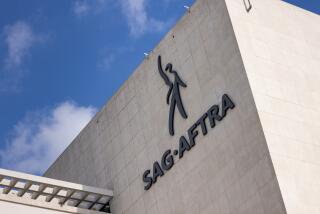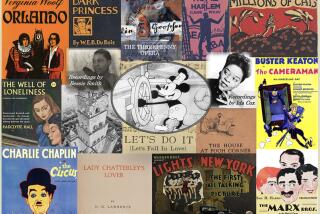A sensible copyright ruling
The U.S. Copyright Office trimmed the power of copyright holders in a small but meaningful way this week, giving documentarians, amateur video remixers and iPhone users more freedom to exercise their rights as creators and owners. In doing so, it made a point about individual responsibility that lawmakers should take to heart.
At issue was a provision of the 1998 Digital Millennium Copyright Act that makes it illegal to circumvent electronic locks that control access to copyrighted works. Such locks, which are common on DVDs, video games and subscription entertainment services, are designed to let people play the content they acquire but not make playable copies of it. The law exempts a handful of groups that arenât potential piracy hotbeds â for example, libraries, law enforcement officials and security researchers â and requires the Library of Congress to provide other exceptions every three years as needed to ensure the publicâs ability to make fair use of copyrighted material.
Documentarians and amateur filmmakers argued to the Copyright Office that the anti-circumvention rule interferes with free speech by creating a legal barrier to making fair use of the material on DVDs. The ban on circumvention posed an especially high hurdle for documentarians, they argued, because it forced them to seek permission from â and often pay â each copyright holder for the scores of clips they used. It also put their subjects in a position to withhold material that might be crucial to the documentary.
The decision announced Monday gives these groups more freedom to use short excerpts from DVDs for the purposes of criticism or commentary, but only when high-quality images are necessary to achieve their purpose. The ruling doesnât permit copyright infringements; it merely says that documentarians and noncommercial filmmakers wonât be barred on the presumption that they might infringe.
The new rules also absolve iPhone users from liability if they install unauthorized applications on their phones â a process known as âjailbreaking.â The locks Apple uses to bar such applications donât really protect the companyâs copyrighted iPhone software; they preserve Appleâs control over how people use the iPhones they own. The new rules donât prevent Apple from disabling unauthorized applications by updating the iPhoneâs operating system, as it has done in the past. Such techniques seem shortsighted, because open systems lead to more innovation and value for consumers than closed ones, but thatâs Appleâs call to make.
Notably, itâs still illegal to make or distribute the technology needed to circumvent electronic locks. Nor does the ruling expand the meaning of âfair use.â Instead, the Copyright Officeâs narrow ruling helps put the onus back on copyright holders to prove that individual documentarians, amateur videographers or phone users are infringing, rather than hobbling them out of fear that they might.






